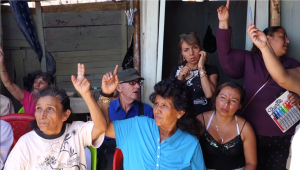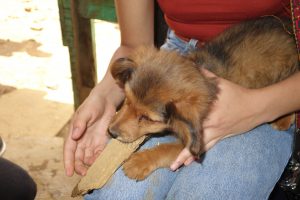In weekly workshops, Global Pathways Colombia students respond to academic articles and reflect on their experiences so far. We are publishing a selection of their reflections on this blog. After the first week, students were asked to reflect on their first impressions of Medellín — their daily lives, places we’ve visited, stories we’ve heard, their host families, etc.
Simon Gibson Penrose, Emerson College
I am blown away by the generosity, openness, and affection displayed by both my host family and the people of Manantiales. They were all so welcoming and loving from the moment we met them. My host moms make me breakfast everyday, even when I need to leave early for Manantiales. They treat me as they would their own son. They hug and kiss me multiple times a day. They call me “mi amor”. I don’t think I know anyone in the US who would be that committed to a person their simply housing. They take the phrase “homestay family” very literally. I am their son for a month. Yesterday, Nora’s son and daughter came to the house and they treated me as their brother, Juan David especially. He is so nice, he made me feel so comfortable with him in a matter of minutes, and I normally don’t take to new humans that fast. He asked if I had ever tried unripened mango with salt, pepper, and lemon juice and I hadn’t. This made him very excited and he used it as an opportunity to walk around the neighborhood to search for unripened mangoes but also to just talk and get to know each other. We walked around Carlos E. for probably 45 minutes scanning all the mango trees but most of the trees were empty. We found two mangoes on one tree that were pretty high up and there was no way to climb it to grab them, so we went with a rock throwing strategy which got us one after a few minutes. Although we were on a mission for fruit, this was a great experience for us to get to know each other. I truly feel like he is my brother. He accepts me as I am, he loves me for who I am and I feel like I can be the best version of myself around not only Juan but my whole family. These people are warming my cold Seattle heart. And so is the city of Medellin. Even though we are clearly a very non-Colombian group who do not have the best handle on Spanish, all the people at restaurants and shops have helped us out. Even when we give them the deer in the headlights look of “Duuuuh, what did you say?” they continue to help. They may chuckle a bit at our expense, but that is completely understandable. If this case were reversed in the US, I could see it going wrong in so many ways. In Medellin, they just want to help you get what you want. It is also great having so many beautiful trees and plants in the neighborhood. It reminds me of home, except these trees are better since they bear mangos, avocados, and tangerines. I’m really loving it here and couldn’t be more glad I came.
•••
Isha Marathe, Emerson College
 I always find it difficult to understand a city until I have left it. I suspect it will be the same with Medellin.
I always find it difficult to understand a city until I have left it. I suspect it will be the same with Medellin.
Since getting off the airplane five days ago, everything that is happening feels like it is happening off a pre-written script rather than as consequence to my actions. Rosa – my host family’s housekeeper – taking the liberty to unpack my suitcase, and arrange my clothes with precision keener than a weaver bird’s, on my very first morning in Medellin, was perhaps what set the tone to my time in the tastefully spic and span apartment of Alcira Bonilla’s family.
Alcira, somewhere in her early sixties, mother to three and grandmother to two was kind-hearted in the sort of way someone is when they needn’t even try. At least for the brief time that we met, before she left for ten days to her daughter’s function. The night before, she assured me and my roommate “Rosa se encargará de ti.”
She was not joking.
Rosa, is magical. She has powers where she knows when our dirty clothes are put out. When we need them. When we sleep. When we wake up. When we sleep because we are tired. When, because we had an extra glass of wine. When to set out an intricately designed plate of fruit, arepas, a glass of freshly squeezed juice. The food is enjoyable in a way I had forgotten food could be. The coffee we drink every morning is brewed with beans off the Bonillas’ farm. As is the fruit, picked off their farm. And it tastes like fireworks and looks like love and wafts all the way into the steaming shower every morning and when Rosa says ‘Buen provecho,’ the sentiment defies any and every language barrier we might have.
I must put a stop to my tirade about food now or it won’t ever end. I do not joke. I have heard we are having corn arepas and chocolate for breakfast tomorrow. I have no idea what corn arepas are. But I cannot wait. I have not been able to not wait for food since I left my grandmother’s kitchen.
It is not only Rosa, and her unsettling clout with multitasking that fills that apartment in Carlos E. but everyone in it. The ever-so-naughty 2-year-old twins Emilio and Luciana. Alcira’s 21-year-old son Santiago who eats meals with us, educates us on all things Colombian liquor from sample shots of Aguardiente and Ron – followed by an only slightly sarcastic, but mostly anxious “I don’t want you to think our family is alcoholic.” And everybody else who circulates in and out of that flat from uncles, aunts, cousins, girlfriends and people who will hug and greet me without either one of us knowing who the other is.
I must say life outside that flat is not terribly different.
Medellin, though boasting of heady cannabis (re: Boston) and notorious for heady other things, has not ceased yet to impress me in its lightness. In its honest passion for salsa, for life, and for an ice cold beer. Which, by the way, is available everywhere I have been to yet. If one needed beer impromptu for emergencies of health, Medellin is the place to be.
I suppose I feel like everything is out of my control because it all feels so easy. From decisions such as how much money to withdraw, what to eat, when to eat, when to wake up – seems so many days drafted by Ryan in his meticulous pre-trip instructions. I’m not sure how I feel about it yet. About Medellin. Objectively, I see its beauty. In its stunning greenery, feel it in the pleasant breeze that is only sometimes unpleasant. Even when we wear our backpacks to our fronts for worry of people in need of money at the Metro, the rules seem so set in stone I can hardly find it in myself to even want to break them.
I suppose as difficult as I find it to analyse my reactions to Medellin, I find it perhaps just as – if not more – effortless to analyse my reactions to its people. I won’t talk about Manantiales De Paz in this response because it will be difficult to mention it in passing without doing justice to it. I will say, however, that I have rarely met people so genuinely invested in the feelings of others, as in Medellin. I can’t wait to continue this program, to explore more convenience stores and pubs and vans buzzing with tattoo machines.
So far, it has been absolutely lovely – as though completely without my control.

